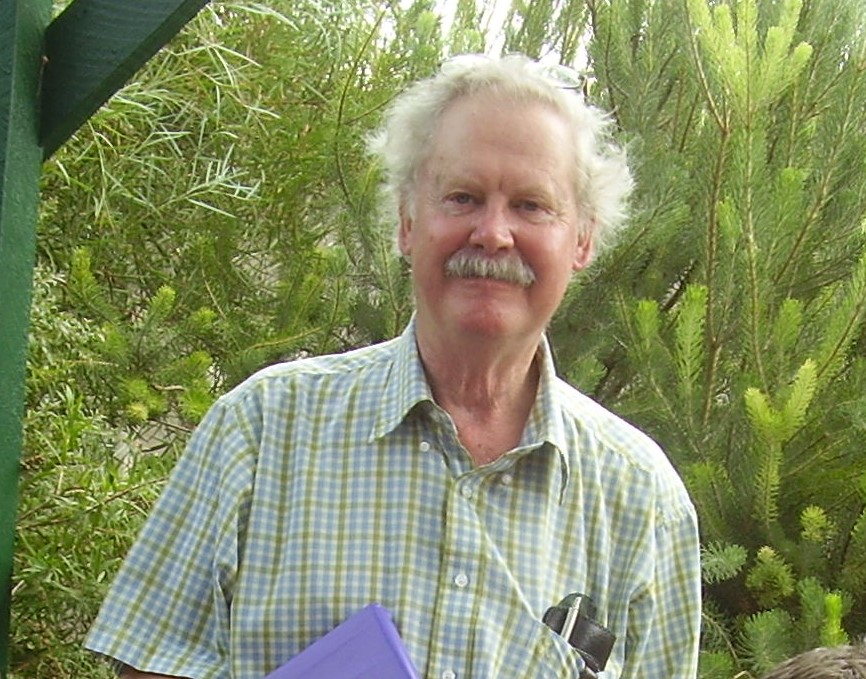
It is with sadness that Flinders University learned about the recent passing of former English staff member Humphrey Tranter. Emeritus Professor Graham Tulloch remembers his colleague and mentor.
Humphrey Tranter rather liked the fact he followed three key professions in his life: farmer, soldier and teacher. For a short time before going to Cambridge University to study English, he lived on a farm – ‘being a dairy maid’ as he put it – and after Cambridge he was on national service in Germany, where he met his wife Daphne. However, it was to teaching that he devoted almost all of his working life.
After 10 years teaching in a secondary school in England, he taught in the English department at Sydney University for three years before joining the English staff at Flinders in 1970. His talents as a teacher shone brightly until his retirement in the mid-1990s, and year after year he made his huge contribution to the department and the school.
After his retirement, he maintained connections with Flinders, returning to give occasional lectures and classes. To his great satisfaction, four of his six grandchildren studied at Flinders, as his three daughters had done previously.
Humphrey was a much-loved and inspiring teacher, especially, though not exclusively, of poetry. His knowledge of poetry in English was stupendous and his ability to engage students in his love of it was exceptional. Mention any poem and Humphrey could quote line after and line from it, if not the whole poem, and he continued to do this right up until the last weeks of his life. He taught poetry across the full spectrum of English literature, from Chaucer through to the poets of his own time. He also taught Shakespeare for many years and had a particularly strong interest in medieval drama.
Although he preferred to read poetry, he also had a very broad knowledge of all aspects of English literature. Humphrey developed a number of innovative courses: he taught the poetry of the First World War before it became a popular subject in schools, inspired students with his love of ballads (even though ballads are notoriously difficult to teach in a literary context), and conveyed his love of verse through a topic in which students learned to write properly scanned and rhymed verse.
He loved the English language, not only in verse but also in the prose of the King James Bible and the Book of Common Prayer, and he carried this over into his love of song. He was a fine singer and many will remember him singing of ballads and folk songs.
Humphrey enjoyed teaching with others. He was a wonderful colleague to work with. I, for one, experienced this through our joint-teaching of medieval literature, to which he brought a world of knowledge and enthusiasm. Always open to new collaborations, he taught World War I poetry with David Close from the history department.
Humphrey never pushed himself forward at the expense of others, despite his manifest talents, and he was always generous in his support of students and colleagues.
This quietly remarkable man was the perfect model of the scholar-teacher. Many are the students, and colleagues as well, who were moved forward in their knowledge and love of literature by Humphrey.
As one of my colleagues wrote to me, he was “a kind and generous colleague who really liked—and was liked—by his students”.
Humphrey will be remembered with deep fondness by students and colleagues of Flinders University.
Vale, dear Humphrey.
***
Our thoughts are with Humphrey’s family and friends at this time.
Flinders University acknowledges that this sad news may be upsetting for members of our community. Please remember that staff can access the Employee Assistant Program (EAP) at any time, and the Health & Wellbeing page has a list of resources and support services available for students.

